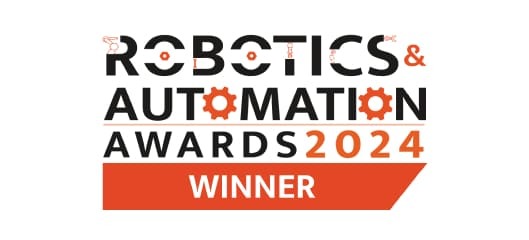Blog

Trends Explained: Why robotics is attracting massive $24 trillion investment
Robotics is no longer just the stuff of science fiction—it’s a key driver of industry transformation today. With ARK Invest projecting a $24 trillion opportunity in the robotics sector, it’s clear that automation has moved from niche to necessity across multiple industries.

Is your WMS still enough? Why 3PLs need to look beyond for success
We all know how crucial it is to keep everything running smoothly. Warehouse Management Systems (WMS) have been the go-to solution for managing inventory and operations. But in today's environment, can you really rely solely on your WMS to stay competitive?

Dexory named a Cool Vendor by Gartner®
Dexory, a leading robotics and data intelligence company for supply chain optimisation, has been recognised as a Cool Vendor in the 2024 Gartner Cool Vendors™ in Logistics and Robotics Technology report. Our cutting-edge technology is trusted by organisations worldwide to enhance productivity, streamline inventory management, and overcome labour challenges in their supply chain operations.

AI-powered smart warehouses: How AI and robotics are transforming your operations
By integrating advanced technologies—think robots, AI tools, and automated conveyor systems—you can streamline tasks such as inventory management, picking, packing, and shipping, enhancing both efficiency and accuracy.

Exploring innovation with Dexory and Northvolt: Insights from Monocle’s podcast
In a recent episode of Monocle’s "The Entrepreneurs," the spotlight was cast on some of the most exciting technological advancements shaping the future of the industry. Among the fascinating features was a look at Dexory, a company making waves in the logistics sector with its innovative approach to warehouse management.

DexoryView: Enhancing warehouse safety and compliance with cutting-edge technology
Our safety and compliance features are designed to address these challenges head-on, providing an advanced, integrated approach to maintaining the highest standards of safety while optimising operational efficiency.

Trends Explained: UK shopping via social media surges by 32% since 2022 and impact the warehouse automation market
You’ve probably noticed how much easier it is to shop directly through social media these days. In the UK, shopping via social platforms like TikTok, Instagram, and Facebook Marketplace has exploded, surging by 32% since 2022.

Enhance warehouse visibility and productivity through DexoryView’s Trend Analytics feature
One of the standout features that truly sets DexoryView apart is our Trend Analytics—a game-changer in real-time visibility and AI-powered actionable insights.
.jpg)
Operate with 99.9% accuracy: Track your warehouse inventory with barcodes and AI stock-scanning robots
Effective inventory management is crucial for a successful warehouse operation. Traditional methods, which often rely on manual tracking, can be time-consuming and error-prone, leading to inefficiencies and increased costs.
Auszeichnungen und Anerkennung

.png)







.png)






Upcoming events

IntralogisteX 2026 | NEC, Birmingham
IntraLogisteX is for logistics professionals who are looking for solutions to their current and future challenges, from the latest materials handling technologies to full-scale warehouse automation options. This event is designed for end-user practitioner logistics professionals such as warehouse managers, heads of distribution, IT directors and lead project managers.

March 18-19, 2026

NEC, Birmingham
Ready to evolve your warehouse into a dynamic, efficient, and intelligent operational environment?

The financial benefits of full warehouse visibility
Visibility is a bit of a paradox. The moment it’s missing, it becomes painfully obvious—everyone's had those “If only we’d known…” moments.

Meet the team: Giedre, Senior Sales Director
I've been working in sales since I finished university, starting as a salesperson in Lithuania before moving to the UK to work for a big corporate organisation. I never imagined I'd stay in one place for 15 years, but I did. Eventually, I felt the need for a change, which led me to Dexory.

The need for speed in logistics and the impact of rapid insights on your operations
Speed and accuracy are everything in logistics today. The eCommerce boom has reshaped how we shop, with customers expecting their purchases almost immediately.